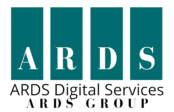Ministry of Corporate Affairs (MCA) rolled out a project named MCA 21 with the objective to:
- simplify forms,
- make such forms e-centric and
- promote online transactions
Before implementation of this project, processes with regards to sorting, storage and retrieval of paper based records were extremely challenging. Manual data collection and verification processes resulted in long queues outside the government offices.
This led to the implementation of the MCA 21 Programme to bring about corporate reforms, good governance and regulation. The intent behind such a programme was:
- to enable businesses to register company and file documents digitally
- help public to access records easily and quickly
- enable professionals to offer efficient services to their customers
- help MCA to warrant effective compliance with regards to laws and corporate governance
Digital Signature Certificate is a part of MCA 21 Programme for e-governance. This article talks about the concept of DSC, types of DSCs and the procedure to register for DSC.
What is DSC?
A Digital Signature is nothing but an authentication of any electronic document by a subscriber to the document. Such an authentication is done by the way of an electronic method or process according to Section 3 of The Information Technology Act, 2000.
Thus, a digital signature certificate (DSC) is a secure digital key that certifies the identity of the holder. A certifying authority (CA) issues these certificates. Moreover, the DSC comprises of identifying information like an email address and an APNIC account name.
Digital certificates use public key infrastructure for data that has been digitally signed or encrypted by a private key. Moreover, this certificate also works as an authentication that establishes your credentials when conducting business online.
Thus, subject to the provisions of this section, any subscriber can authenticate any electronic document by affixing the Digital Signature on the same.
Just as handwritten signature is used for signing the physical documents, Digital Signature is used to sign electronic records such as e-forms etc.
Why is DSC Required?
The provisions with regards to the use of the Digital Signatures on documents submitted electronically are contained in the Information Technology Act 2000. These provisions are given in order to establish authenticity and security of all the documents that are filed digitally.
Thus, all the documents filed by companies, LLPs that come under MCA 21 e-governance project need to file such documents using digital signatures. Such a signature must be affixed by the person who is authorized to do so.
Types of Digital Signature Certificates
The different types of Digital Signature Certificates that are valid for MCA 21 Programme are as follows:
1. Class I (Obsolete)
These certificates shall be issued to individuals/private subscribers. These certificates will confirm that a user’s name (or alias) and email address from an unambiguous subject are within the certifying authority’s database.
2. Class II (Obsolete from 1st January 2021 onwards)
These certificates are required as e-filing is made compulsory in ROC, every director / signing authority needs to have their digital signature.
Hence, it is now mandatory to obtain Class-2 or Class-2 with PAN encryption digital signature. In this type of DSC, the identity of the person is verified against a trusted pre-verified database.
Moreover, this is required for any person who is required to sign manual documents and returns filed with ROC.
3. Class III
Class III is the upgraded version of Class 2 digital signature. By using this certificate you can participate/bid in any kind of online tenders/auction across India. Therefore, to participate in the e-tendering process, every vendor is required to use a class 3 digital signature.
This is the highest level of DSC wherein the person applying for DSC must appear before the Registration Authority and prove his or her identity.
Components of a Digital Signature
- Public Key
This is required as part of a verification system.
- Name and Email Address
This is required for contact information purposes and for ease of identification.
- Expiration Date of the Public Key
This part of the signature is used to set a shelf life and enable the signature to be reset.
- Name of the Company
This section identifies the company that owns the signature.
- Serial Number of the Digital ID
This part is a unique number that is bundled to the signature for tracking ad extra identification reasons.
- Digital Signature of the Certification Authority
This is a signature that is issued by the authority that issues the certificates.
Also, all those that are authorized as signatories that sign manual documents are required to obtain a digital signature under MCA21. Therefore, personnel like directors, auditors, company secretary, bank officials and other authorized signatories must obtain a digital signature.
Topic Courtesy www.quickbooks.intuit.com
